The problems - and the solutions
The most farmed land animal on the planet – the broiler chicken - exists in a ‘physiological cage’, constricted by its high growth rate and oversized body, and raised in overcrowded barns.
Compassion’s ongoing work with the food industry involves investigating supply chain solutions to help drive the market towards better chicken.
Too many birds, not enough room
Meat chickens are the most farmed land animal in the world. Seven billion are reared in Europe every year, and 90% of these are crammed into barren sheds.
Chickens can feel emotions just like us, such as pain and fear, so regularly suffer in these harsh conditions.
The problem - overcrowded sheds
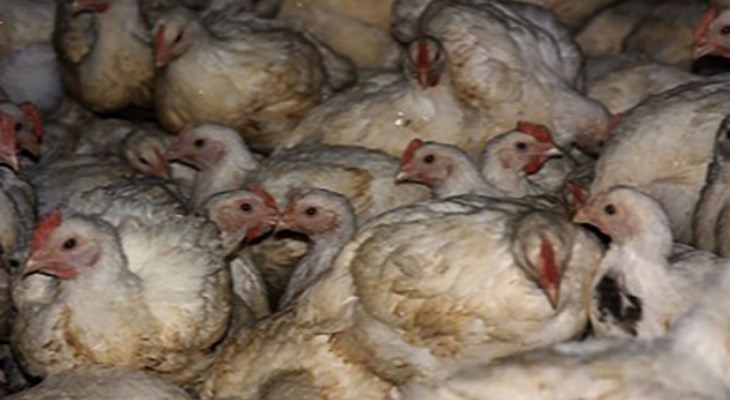
Intensively farmed chickens are packed into overcrowded sheds - often with little or no natural light and only litter on the floor. They dislike being crammed together and will compress their feathers to avoid touching one another.
A lack of stimulating materials mean they spend most of their time inactive and bored.
The solution - room to breathe
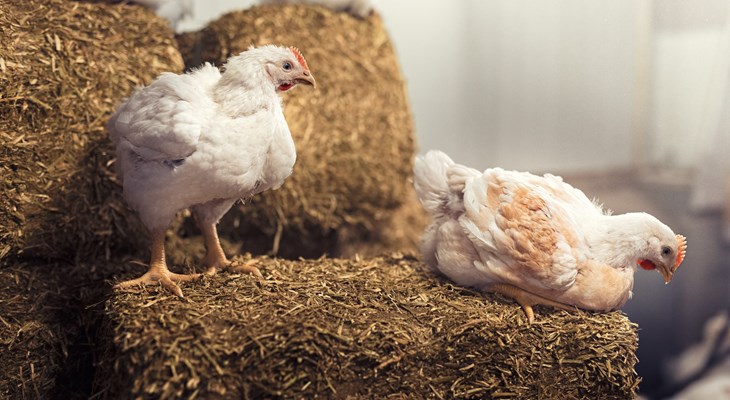
A chicken’s life is transformed when they are given more space, natural light and can do what comes naturally: pecking, scratching, wing flapping and perching.
In the best systems, they have separate places to rest, feed, drink and play – and can go outside for fresh air and sunlight.
Too big. Too fast
Most chickens are bred to grow so quickly they suffer a range of health problems including heart defects, organ failure, muscle disease, foot lesions and compromised immune systems.
Chickens are healthier, happier and more active when they are bred to grow more slowly and have the space and stimulation they need to behave like chickens.
The problem - trapped in oversized bodies
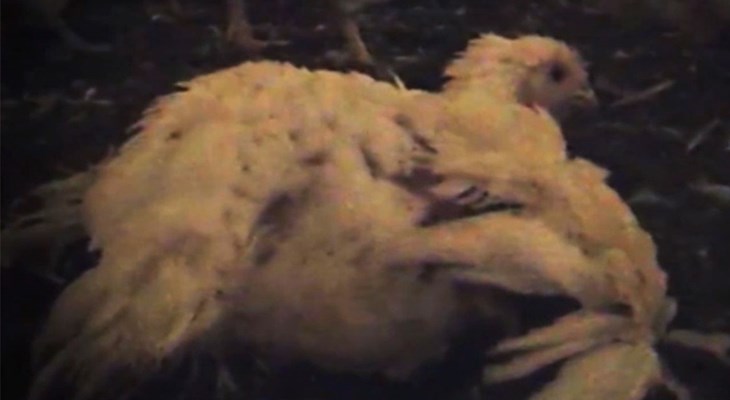
Intensively farmed chickens can struggle to walk and spend most of their time sitting doing nothing or become lame. Their high body weight causes their muscles to degenerate. Many also develop heart conditions making them even more inactive and prone to metabolic problems.
The solution - a natural, healthy size
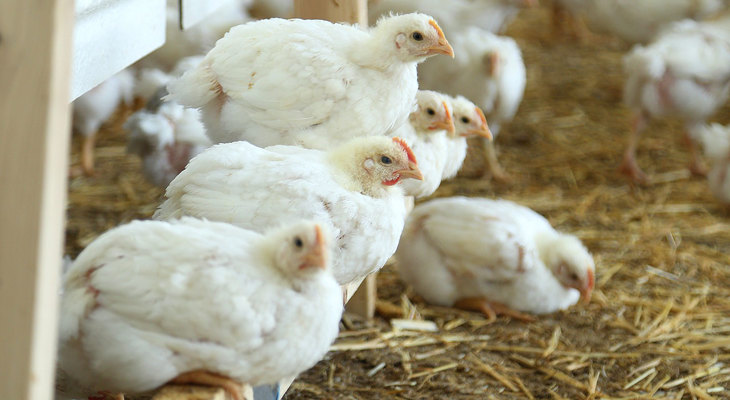
Slower growing breeds means:
- Chickens have more natural proportions and are able to walk more easily
- Chickens have stronger hearts and better resistance to disease
- Chickens have stronger, healthier muscles which provides good quality meat
Bad for them. Bad for us.
The majority of chickens reared for meat are bred to grow so fast they're ready for market as early as 33 days old. This is exhausting for them and leads to serious health problems.

Selective breeding to create fast-growing animals, and their poor living conditions, means antibiotics are often routinely used to combat disease.
The problem - unhealthy for chickens and consumers
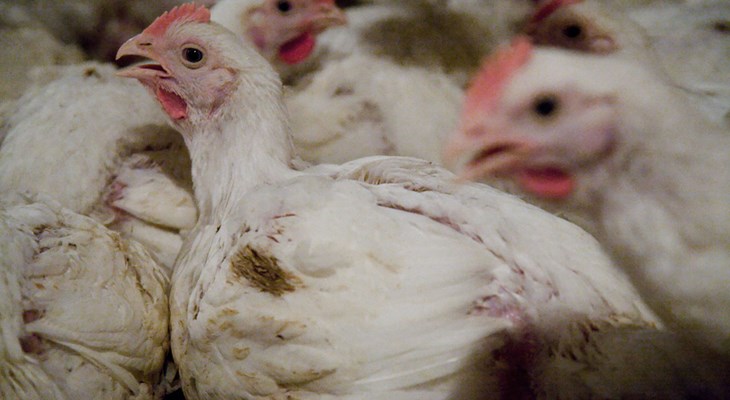
Poor immune systems and living conditions allow bacteria to flourish, which can lead to a greater risk of food poisoning
Antibiotics are routinely given to chickens to survive poor welfare systems, when they should only be given to sick animals.
The quality and nutritional content of intensively farmed chicken meat is also poorer.
The solution - healthier chicken, better for customers
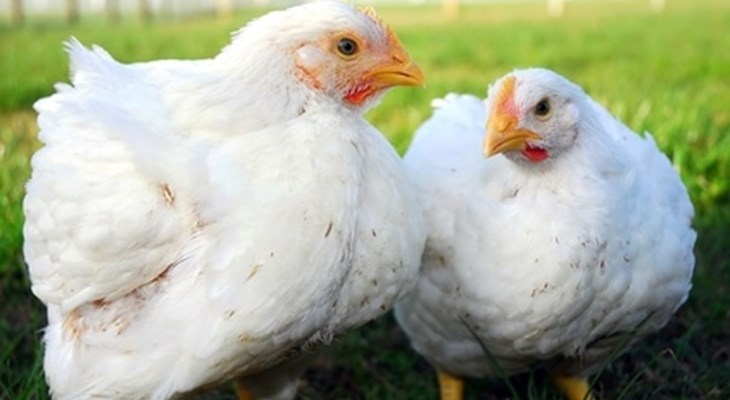
Making sure chickens don’t grow too fast and have better living conditions dramatically reduces the need for antibiotics. As a result fewer chickens become infected with harmful bacteria.
Higher welfare chicken means you can offer better quality meat and healthier, more nutritious food to your customers.
Higher welfare chicken is:
- Better for chickens - they are more active and healthy in higher welfare systems
- Better for health - less disease and reduced risk of food poisoning
- Better for your customers - higher quality, more nutritious food